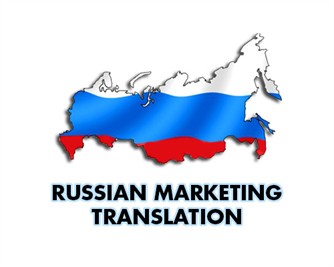Challenges with Russian Marketing Translation
“Russia is a riddle
wrapped in a mystery
inside an enigma.”– Sir Winston Churchill
Marketing translation is unlike any other types of translation. It requires special knowledge and skills that are almost opposite to those required for technical, legal or medical translations. For example, in the case of technical translation where the content is usually formulaic, terminological precision plays a tremendous role. On the other hand, the main purpose of the marketing translation is to convey the message, human emotions and the atmosphere of the particular text. From a linguistic point of view, Russian marketing content is a boundless “ocean” of metaphors, symbolism, puns, hyperboles, etc… All of this requires linguists who do not only “know” the Russian language, but are also strong writers with their own style, way of thinking and great wish to create content “modern masterpieces”.
Challenges with Russian Marketing Translation
Communications:

We frequently discuss translation challenges with our clients. We talk about the quality, the clients’ expectations, rates, reference materials and other issues. Gaining a better understanding of these issues contributes to the successful cooperation between the client and the translation agency and makes the process of translation more transparent for the client. This open communication is what ultimately leads to successful translation output.
Regulation and Quality:
Marketing and Advertising Translation Services in Russia have no formal legal validations and they are not subject to special regulations or certifications. For this very reason the translation industry in Russia has to work out their own standards. It is a long, time and skills consuming process which requires great team work in which the client also participates to produce culturally appropriate translations. Language leads/copywriters and the Translation Team, in close cooperation with the client create glossaries, guidelines and requirements for marketing content translations.
Terminology:
Russia is a still a developing country in many ways. While it is one of the most advanced in science and technology, some industries related to tourism or trade may be behind the times. While many developed countries are using the latest terminology for a given industry, and successfully communicating with each other to conduct business, some areas like the hospitality industry use terms that the Russian-speaking market in general are not used to hearing. In this case, the quality of the translation fully depends on the particular translation agency, the expertise of its Translation Team and Language Lead who consistently have to take the responsibility for research and copy writing terms used in localized documents or websites.
Translation Teams:
As Russian language marketing content is constantly growing, the demand for qualified and experienced translators is also increasing. Translation agencies must test and qualify a lot of new translators every month, in order to recruit enough qualified candidates to join account teams covering a multitude of industries. In addition, Translation Project Managers must do a good job reviewing resumes, samples and internal team feedback for new linguists assigned to teams to ensure quality translation services are always delivered. Translation agencies should have internal Language Quality Assurance Teams (LQA Team) or Language Leads who can not only say “yes” or “no” but also coach the new Russian translators, and can provide them with the needed reference materials and answer all the questions that can arise during a translation. Project Management and internal language support/review for all translated content are considered to be key stages in the translation process.
Diversity of translations:
The Russian language is lexically very rich and practically every word except prepositions and pronouns has more than 10 direct synonyms. Every time a Translation Team chooses a word that conveys the author’s messages correctly, it is the result of research, study and original copy writing, not necessarily just translation. Marketing content is especially challenging in the Russian language because of this linguistic diversity.
Conclusion
Despite the absence of accepted quality standards, lack of key Russian language terminology for certain industries, challenges to recruiting and training good translators and the variety of copy and translation choices, it is imperative to seek out and work with professional Russian translation teams. The Russian-speaking market is large and engaging them in their language is a must and the companies who decide to localize their documentation or website in Russian will get much more than just translated content, they will get practically unlimited opportunities for their business.
